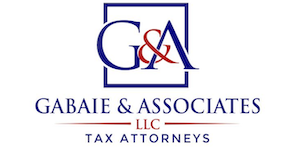When you owe back taxes the IRS can attempt to collect its debt by issuing tax liens and tax levies. A lien simply protects the government's interest in your property. A levy, on the other hand, is the tool used to actually take your property from you. If you have received a notice of a tax lien or tax levy from the IRS, it is important to speak with an experienced tax attorney as soon as you can. Attorney Juda Gabaie can help to devise a strategy that both protects your property and resolves your tax liability.
IRS Tax Liens
The IRS has the authority to place a tax lien on your personal property if you have neglected or failed to pay your federal tax bill. You do not automatically forfeit your property when a tax lien is issued. Instead, the lien simply protects the government's interest in your property and reserves the agency's right to benefit from it in the future.
For example, if you sell your home or business, any proceeds and equity are reserved first to pay the government before you. When a tax lien is issued, you may find that your credit score is hurt or that it is more difficult to run your business. A tax lien attaches to any property and assets that you currently own, as well as to any property you acquire in the future. The IRS frequently targets real estate property when issuing tax liens.
IRS Tax Levies
The IRS also has the authority to physically take your property from you if you have unpaid taxes. Tax levies can be placed on a variety of assets, including your personal property (e.g., home, vehicle), wages, banking accounts, business property, and retirement benefits. The agency can be creative in how it levies your property.
For example, the IRS can choose to seize your family car or garnish a percentage of your wages until your debt is paid in full. The IRS may not place a levy on certain assets, including unemployment benefits, workers' compensation benefits, necessary clothing and household items, and some pension and disability benefits.
What Should I Do If The IRS Has Issued a Lien or Levy?
If you've been notified by the IRS of its intent to place a lien or levy on your property it is important to understand all of the legal options available to you. Your options will depend on whether the IRS has decided to place a lien or impose a levy.
Resolving a Tax Lien
When the IRS decides to impose a tax lien on your property it must publish a Notice of Federal Tax Lien. This Notice formally put you and any of your creditors on notice. When you receive notice of the lien you have a few options. First, you can generally choose to pay your tax bill in full within 30 days. If you do this, the government will release the lien on your property. Second, you can appeal the agency's decision to impose a lien. If you decide to appeal, you must explain why you disagree with the lien and/or propose alternatives.
Resolving a Tax Levy
The IRS must provide you with a Final Notice of Intent to Levy before it can seize or garnish your property. The agency must also explain that you have the right to appeal the decision. You will have 30 days to file a formal appeal in which you contest the decision and/or propose alternatives. Offers in compromise and IRS installment plans are tools that can be helpful in getting a tax levy reduced and/or removed.
Get Help With Your IRS Tax Lien or Levy
When you have unpaid taxes, the IRS may decide to place a lien or levy on your assets. If you have received a Final Notice from the IRS regarding a tax lien or tax levy, it is important to act quickly. Hiring an attorney to help you resolve the issue will increase the chances of securing a positive outcome. Call the tax attorneys at Gabaie & Associates, LLC today to request a free consultation and learn more.
